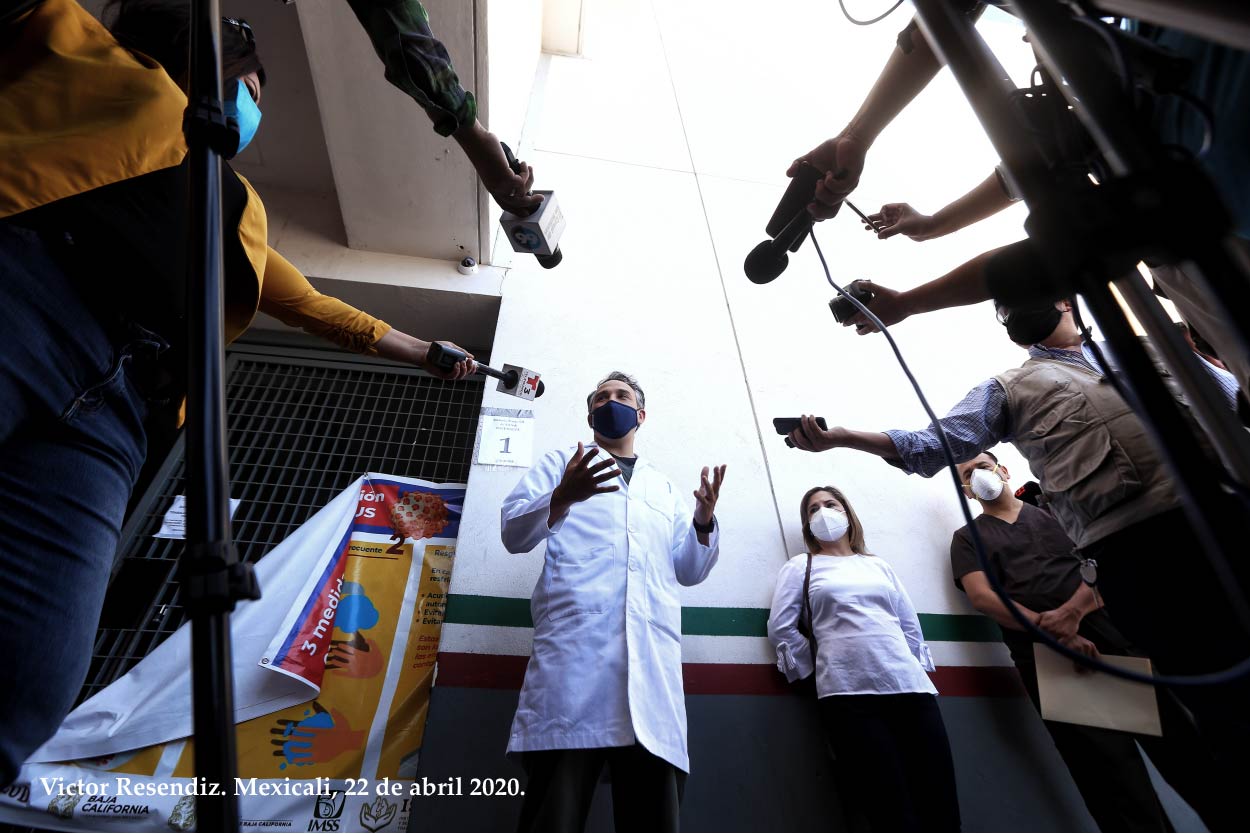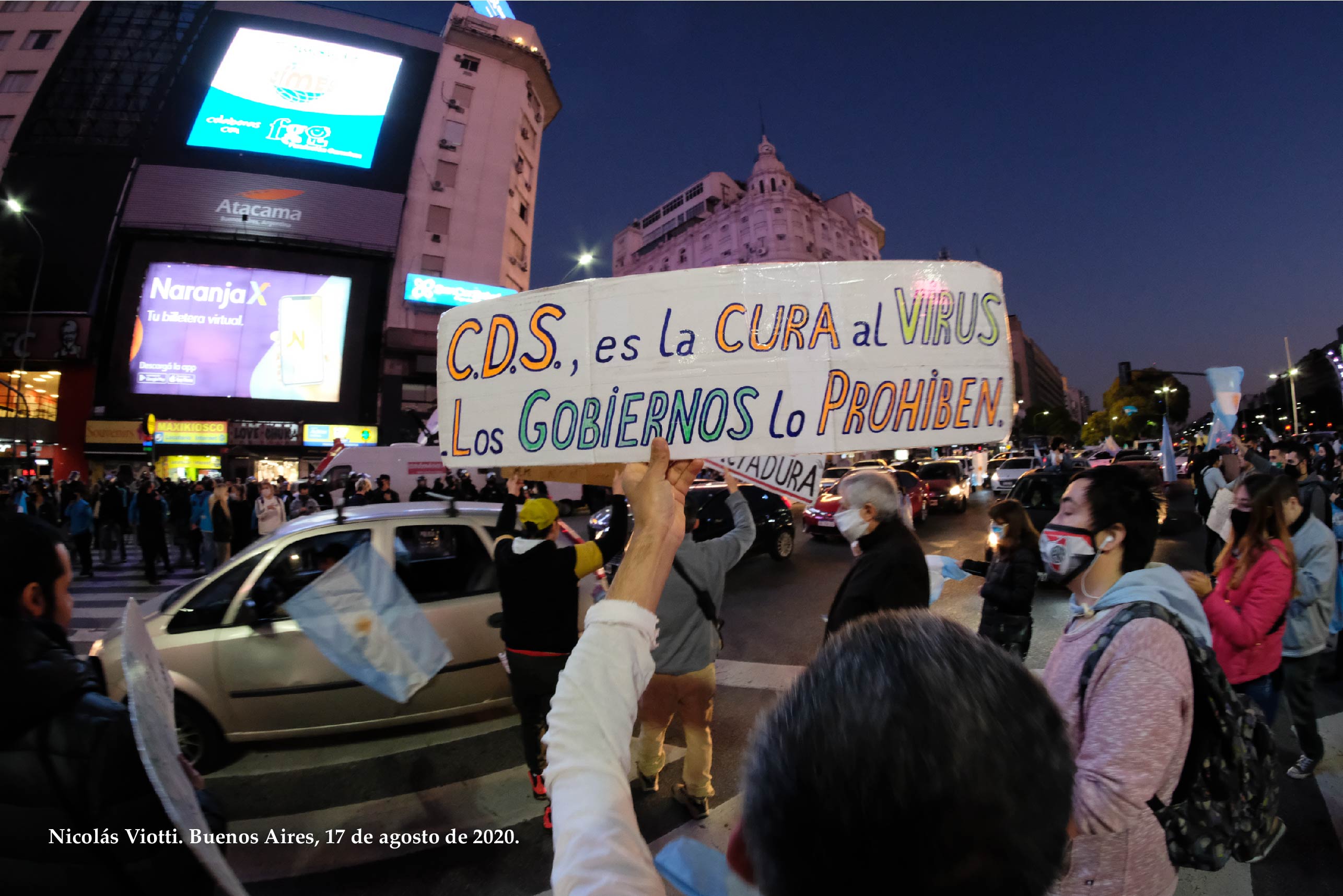Discrepancias is a section that invites people from different fields to answer mobilizing questions about a specific problem. His interpretive proposals are expected to motivate controversy and make it easier for readers to think outside the box.
Vol 8 No 16 (2025)

Fly Agaric. More: Amanita muscaria, commonly known as the fly agaric or fly amanita, is a mushroom and psychoactive basidiomycete fungus, one of many in the genus Amanita. Native throughout the temperate and boreal regions of the Northern Hemisphere, Amanita muscaria has been unintentionally introduced to many countries in the Southern Hemisphere, generally as a symbiont with pine and birch plantations, and is now a true cosmopolitan species. It associates with various deciduous and coniferous trees. Original public domain image from Flickr
Holistic well-being or cultural extractivism? Who decides? Questions on the consumption of psychedelic substances and their territorial impacts in Latin America.
- Ezequiel Alí Cortina Bello
- John Scuro
- Sarai Piña Alcántara
- moderator Frances Paola Garnica Quiñones
The massive consumption of psychedelics has intensified debates about their impacts on indigenous communities in Latin America. As globalization drives the commercial and therapeutic use of sacred plants, tensions are generated between Western holistic wellbeing and the preservation of indigenous cultural heritage. This text examines how psychedelic extractivism de-territorializes plants and ancestral knowledge, creating new markets that transform traditional relationships with these beings considered political-spiritual agents by native peoples.
Vol 8 No 15 (2025)

Palestine as seen from Latin America
- Brenda Carranza
- Damian Setton
- Marlene Hernández Morán
- Moises Garduño
- Nicolas Panotto
Debate on how the Palestinian situation is perceived from different Latin American perspectives. Experts from Mexico, Brazil, Chile and Argentina reflect on the current Israeli occupation in Palestine, analyzing the political, social, religious and student reactions in the countries of the region. The influence of Christian Zionism, pro-Palestinian mobilizations and geopolitical dynamics that shape the understanding of this conflict in Latin America are addressed.
Vol 7 No 14 (2024)

Credit: Wellcome Library, London. Wellcome Images
The relevance of Marcel Mauss's essay on gift
- Marcos P. D. Lanna
- Renata de Castro Menezes
For Mauss, the gift encompasses innumerable phenomena, but, more than a phenomenon, he considers it a relationship. They are goods, words, people, visits, parties, music, gestures, violence, signs, among other significant realities, which may or may not circulate as commodities, from which, once given, emanate some forms of retribution; they are "obligations," says Mauss.
Vol 7 No 13 (2024)

From where to think and subvert the Anthropocene? Latin American thought and alternative anthropocenes.
- Anthony Goebel Mc Dermott
- Eleonora Rohland
- Yolanda Cristina Massieu Trigo
The Anthropocene, as a concept and framework for thinking and producing knowledge on contemporary issues, has given rise to multiple debates on the validity and scope of its proposals. The natural and Earth sciences debate whether or not it is a new geological era, in which the intervention of the human species would have a primordial role; however, other debates arise from the social sciences and humanities.
Vol 6 No 12 (2023)
Perspectivism: a theory from the point of view of otherness?
- Gabriel Luis Bourdin
- Olivia Kindl
- moderator Arturo Humberto Gutiérrez del Ángel
Keywords: otherness, ontological turn, Perspectivism, Philippe Descola.
For some, perspectivism is a revolution in anthropological thought, while for others it is not a theory, but rather an ideology forged by bringing into the arena of discussion old, unearthed and outdated paradigms that were long ago superseded.
Vol 6 No 11 (2023)

Activisms and Biomedical Narratives on Gender and Sexuality
- Maria del Rosario Ramirez Morales
- Mónica Cornejo-Valle
- Rafael Cazarin
Sex has been problematized and is no longer considered only a biological phenomenon, to give way to the discussion on sexuality and to make the body visible as the space where meaning-producing relationships materialize.
Vol 5 No 9 (2022)

Debates on Cultural Heritage and the Commercialization of Collective Expressions
- Aura Cumes
- Jesús Antonio Machuca Ramírez
- Suely Kofes
- Xóchitl Eréndira Zolueta Juan
In the last decade, a wave of accusations has been launched against brands and companies for using cultural elements of indigenous groups. In Mexico, several cases have had considerable resonance: the complaint by the Mixe community of Tlahuitoltepec against the French company Isabel Marant for copying its Xaam nïxuy blouse; the protest by the Secretary of Culture, Alejandra Frausto, against the fashion house of Carolina Herrera for the use of embroidery from Tenango de Doria and the sarape from Saltillo; and on three different occasions the fashion clothing company Zara has been accused of plagiarism for using designs from Aguacatenango, Chiapas.
Vol 5 No 10 (2022)

The Religious and/or Spiritual Matrices of the Conspiracy Theories in Times of COVID-19
- Enriqueta Lerma
- Hugo H. Rabbia
- Mar Griera
- Rodrigo Toniol
The covid-19 pandemic and the confinement it brought with it led the whole world to seek new ways of organizing daily life. They also imposed the need to rethink the way we relate to nature and the meaning of our individual, social and species existence.
Vol 4 No 8 (2021)

Pandemic, Year 2. Different Experiences, Shared Dilemmas and Multiple Reflections from Medical Anthropology Around Covid 19
- Mark Nichter
- Rosa Maria Osorio
- Sahra Gibbon
We have invited three specialists from the field of medical anthropology to reflect on their respective experiences and knowledge of Mexico, Great Britain, the United States and India, all of them countries deeply affected by the pandemic, even if in very different ways, and whose management of the pandemic has been oriented in different directions. This allows us to contrast the diversity of official responses to the health and economic crisis.
Vol 4 No. 7 (2021)
Impact of open science on the development of social sciences in Latin America
- Annel Mejías Guiza
- Fernando Garcia Serrano
- Norma Raquel Gauna
- moderator Roberto Melville
Keywords: Latin America.
The social sciences in Latin America have received numerous impulses for their development from the hegemonic countries. Research expeditions, teacher training, the dissemination of books and magazines provide feedback on the relationship between the center and the periphery. In our region, the social sciences have developed confined within the borders of each country. This can be confirmed by looking at the topics and titles of theses, articles and books produced in Latin American countries. However, lasting links at the horizontal level have been built through the exchange of professors and students and the activities of the congresses, and lately on the pages of electronic journals. In this section of Discrepancies we will explore what role fostering open science has to play in the social science locale.
Vol 3 Num 6 (2020)

Photography: Paulo Slachevsky (CC BY-NC-SA)
Social outbreak in latin america and the caribbean: breakdowns, resistance and uncertainties. COVID-19’s challenges
- Breno Bringel
- Heriberto Cairo
- Maristella Svampa
In this edition, the Discrepancies section intends to address the triggers of the social upheaval of 2019 in Latin America, its scope and limitations in the formation of the social subject, its instituting processes, destituyentes or constituents under various imaginary collective-community on parties, social movements or political regimes.
Vol 3 No. 5 (2020)

Photography: Óglaigh na hÉireann. Original. https://creativecommons.org/licenses/by/2.0/.
Shelters and refugees
- Danièle Bélanger
- Dolores Paris
- Eduardo Domenech
The crises that we are seeing in the Mediterranean, on the northern and southern border of Mexico or in South America, derived from the massive mobilizations of people fleeing their countries, force us to reflect on the role that the States in the face of the arrival and / or transit of displaced persons and refugees, in the face of what appears to be a regressive global policy, based on the externalization of borders, restriction and selectivity.
Vol 2 Num 4 (2019)

Traditionalisms, fundamentalisms, fascisms? The advance of conservatism in Latin America
- Catalina Romero
- Fabio Lozano
- Joanildo Burity
- Miguel Angel Mansilla
- Renée de la Torre
- Rodrigo Toniol
The consolidation of conservative projects supported by political and religious actors in Latin America is not a novelty: the continent has seen advances and crises of popular governments, bloody dictatorships, violent speeches and rights expansion processes that are carried out with different intensity and decoupled temporalities in different countries. The ways of naming this trend are the subject of discussion in this section, since the naming itself is a problem: they are expressions made up of diverse sectors socially and even politically, claiming transformations of varying thickness as the context allows them. Based on these ideas, we organized our discussion around three questions, which the authors answered based on the experience of each country.
Vol 2 No 3 (2019)

Debate for the decriminalization of abortion in Congress. Buenos Aires, April 10, 2018. Image of Emerging Photographs, license CC BY-NC. / Cropped from original.
Sexual and reproductive rights of women in Latin America under debate
- Alma Luz Beltrán and Puga
- Angelica Peñas Defago
- Marta Rodriguez from Assis Machado
The arrival of sexual and reproductive rights on the public agenda marked a new moment in the dynamics between law and society in Latin America. But despite important regional and international advances in guaranteeing sexual and reproductive rights in recent years, these often provoke tensions between those who favor their recognition and those who oppose them. In the discrepancy of this issue of Inserts, we hope to clarify some of the main points of the debate around this topic so fundamental for the life and health of women, and for social equality in Latin America.
Vol 1 Issue 2 (2018)
Nation and racism. October 12 in the construction of Latin American societies
- Alexander Grimson
- Alicia Castellanos
- Irma A. Velasquez Nimatuj
- moderator Santiago Bastos
Keywords: October 12, Latin America, nation, racism.
WOn October 12, 1492, the ships chartered by the Crown of Castile under the command of Admiral Christopher Columbus touched down in what would later be known as America. This date is so charged with symbolism that it is part of the civic calendars of almost all the countries of the subcontinent, referring to the relationship between the "mother country" and the republics, their "daughters" despite the sacred independence. We take this date to ask three social scientists how the always conflictive relationship of the Latin American republics with their colonial origins, with the original populations and with the Creole legacy in their formation as nations occurs in their respective countries.
Vol 1 Issue 1 (2018)

Debate for the decriminalization of abortion Congress. Buenos Aires, April 10, 2018. Image by. Presidency of the Mexican Republic, license CC-Attribution / Cropped from original.
Discrepancies around the Internal Security Law
- Alejandro Madrazo Lajous
- Julia Estela Monárrez Fragoso
- Salvador Maldonado
In December 2006, the president of Mexico, Felipe Calderón, declared the “war against drugs” and called out the Army to confront criminal groups in the streets. This public security task does not correspond specifically to the functions of the Armed Forces and, among other consequences, has led to a disproportionate increase in homicides and disappearances in the country. Despite this, the Internal Security Law is presented, which institutionalizes this militarization process and justifies, regulates and legalizes the role of the armed forces in the fight against organized crime. There are many questions that arise in this context and we hope that the guests of this Discrepancies section will contribute to animate the debate, perhaps to clarify it.






